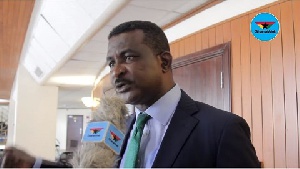 Former Deputy Minister of Finance, Kwaku Ricketts Hagan
Former Deputy Minister of Finance, Kwaku Ricketts Hagan
Former Deputy Minister of Finance, Kweku Ricketts Hagan says the banking sector clean-up exercise was not properly managed under the Akufo-Addo led government.
Ricketts Hagan stressed that the banking sector cleanup by the government was poorly planned.
He also explained that the two previous NDC administrations deliberately encouraged more Ghanaian participation in the financial sector, expressing regret that the clean-up has affected mainly local institutions.
“We promoted indigenous participation in the financial sector because we realized that the sector was dominated mostly by foreign interests, big foreign banks… we said that this sector was such an important sector, so Ghanaians should participate in it”, Kweku Ricketts Hagan told Kwaku Dawuro on ‘Anopa Nkomo’ on Accra-based Kingdom FM 107.7.
“When we were in government the red flag was being waved in the banking sector so we started the processes for bringing things back on track. Unfortunately, we left office before all those measures put in place could crystallize but a new government came to power and I don’t know whether they panicked or whatever happened but certainly the route they took was extreme, it was harsh and I think they have created more harm than they have solved, “he added.
Government had seen signs that some of the banks were struggling but instead of closing them down, they rather decided to give them a policy and monetary support as well as time to recover.
The government could have spent less than the almost GHc23 billion used for the financial sector clean-up on saving jobs instead of closing down financial institutions, the Minority in Parliament had insisted.
The financial sector clean-up commenced by the Akufo-Addo administration in August 2017 led to the collapse of nine universal banks, 347 microfinance companies, 39 microcredit companies or money lenders, 15 savings and loans companies, eight finance house companies, and two non-bank financial institutions.